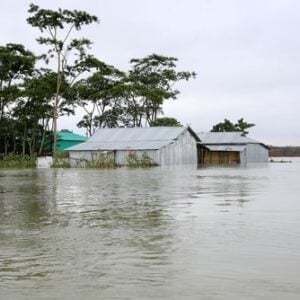The World Bank’s Board of Executive Directors has approved a new $212.64 million project to protect India’s coastal ecosystems, curb plastic pollution, and create sustainable livelihoods for 100,000 people in Tamil Nadu and Karnataka.
India’s coastline stretches over 11,000 kilometers, with nearly one-third vulnerable to erosion and climate-related threats. About 250 million people rely on these coastal areas for housing and livelihoods in sectors such as fisheries, tourism, and transport. The coasts also serve as habitats for 18,000 known species of flora and fauna. However, challenges such as pollution, intensive fishing, loss of mangroves, and urban pressures are threatening marine ecosystems.
The Strengthening Coastal Resilience and the Economy (SHORE) Project, part of the larger $850 million SHORE Program, aims to address these challenges. The initiative will support Tamil Nadu and Karnataka in implementing coastal zone management plans, focusing on skills development, capacity building, and access to resources for local communities and government agencies. Nearly 70,000 people, including women, will be trained in areas like sustainable tourism to create new sources of income.
“India’s Vision 2030 highlights the potential of the blue economy to drive economic growth,” said Paul Procee, Acting Country Director for India at the World Bank. “This project will encourage private sector engagement to reduce plastic pollution, strengthen waste value chains, and foster eco-tourism, creating both environmental and economic benefits.”
As part of the initiative, 30,000 hectares of seascapes in Tamil Nadu and Karnataka will be conserved through mangrove planting, sand dune restoration, and coral protection, supported by both natural and built infrastructure. The project will also work to protect vulnerable species such as dugongs, turtles, and seabirds.
Tamil Nadu, which pioneered the ban on single-use plastics in 2019, will see strengthened waste management systems under the project. Public awareness campaigns, improved recycling, and collaborations between municipalities and the private sector will aim to reduce plastic leakage, benefiting an estimated 120,000 people.
The $212.64 million loan—part of the first phase of the SHORE Program—is financed through the International Bank for Reconstruction and Development (IBRD) and has a 23-year maturity period, including a 6.5-year grace period.







